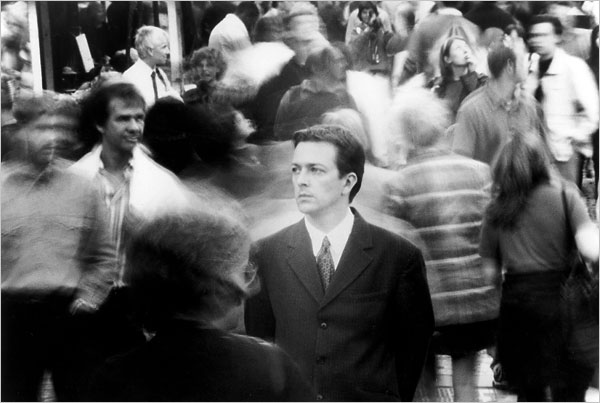DJANGO UNCHAINED
'Django Unchained' is the perfect Quentin Tarantino film: fully alive to the possibilities of cinematic technique, mashing up an invented world with contemporary cultural references, gruesomely violent, and revealing something about ourselves that we haven't seen portrayed in a mainstream movie before. So 'Reservoir Dogs' shows us what gun shots really look like when they land in human stomachs, 'Kill Bill' reconfigures ancient myths about the extent to which parents may go to find their lost children, and 'Inglourious Basterds' makes the tastelessness of other combat films obvious to the point where it is difficult to imagine where the second world film can go next. And each of these films is profoundly paradoxical: does the violence represent, challenge, or reinforce the norm of justified horror that our sculpture worships?; does the use of the 'n' word confront audiences with our complicity in racism, or is it QT's way of getting away with his own?; does the fact that the wrapping is so sleek, so cool, so inviting, allow us to deny that we're also being entertained by stories in which people rip each other apart? 'Django Unchained' is, in this light, Tarantino's most fully realized vision of the world, not to mention his most financially successful film. His direction is so assured, he almost compels you to watch - Cecil B deMille used to come out from behind the curtain to remind his audience of the Importance of the movie they were about to see (in a lovely example of Hollywood over-self-importance, implicitly linking 'The Ten Commandments' to anti-Communist patriotism); Tarantino has made a film about US American history the debate about which is taking on the status of a political campaign. Spike Lee is refusing to watch this story about a freed slave and bounty hunter tracking down bad guys and rescuing the slave's wife, while I've heard other black critics here in the US speak of how liberated they feel by seeing a blockbuster movie entertainment that forces the audience out of collective denial about slavery. When given the opportunity to discuss the filmic references (primarily the Spaghetti Western, but also blaxploitation cinema, and plantation epics), Tarantino will talk all night; when asked to discuss the possible sociological impact of his fictional violence, he stays above the fray, denying any connection at all.
So what we're left with is a film. A film in which we see people torn to shreds by dogs, or beat each other to death, or be threatened with castration; because they are not considered people, but the industrial property of white privilege. This is yet a sanitized version of slavery: two and a half hours in a cinema isn't enough to grasp anything like the realities of involuntary transportation, family destruction, sexual torture, psychological degradation, and murder that considered normal enough that a civil war was fought partly in its name. For that, 'Django Unchained' is truly an important film. It tries to face historic evil, and manages to do it in a form that will maximize the audience.
It also portrays a different kind of black hero than has been previously seen - the range of emotions displayed by Django has not previously been permitted to black characters in mainstream movies. That, along with the sheer joy of filmmaking makes this a certain kind of magnificent film. But it's also a magnificent mess: climaxing with utter destruction wrought by Django in the cause of revenge. Tarantino seems to think that, as with 'Kill Bill's Bride, and the 'Inglourious Basterds', there is no alternative for Django but to slaughter everyone in his path. He doesn't seem to realize - or at least his characters don't know - that there are other morally viable, and dramatically interesting ways to respond to other people's cruelty. You don't have to meet horror with horror. Clint Eastwood knew that as long ago as in the ending of 'The Good, the Bad, and the Ugly'. Tarantino is a fantastic stylist, and a courageous storyteller. But it's hard not to suggest that his philosophical paradigm could do with an extra shot of emotional maturity.

